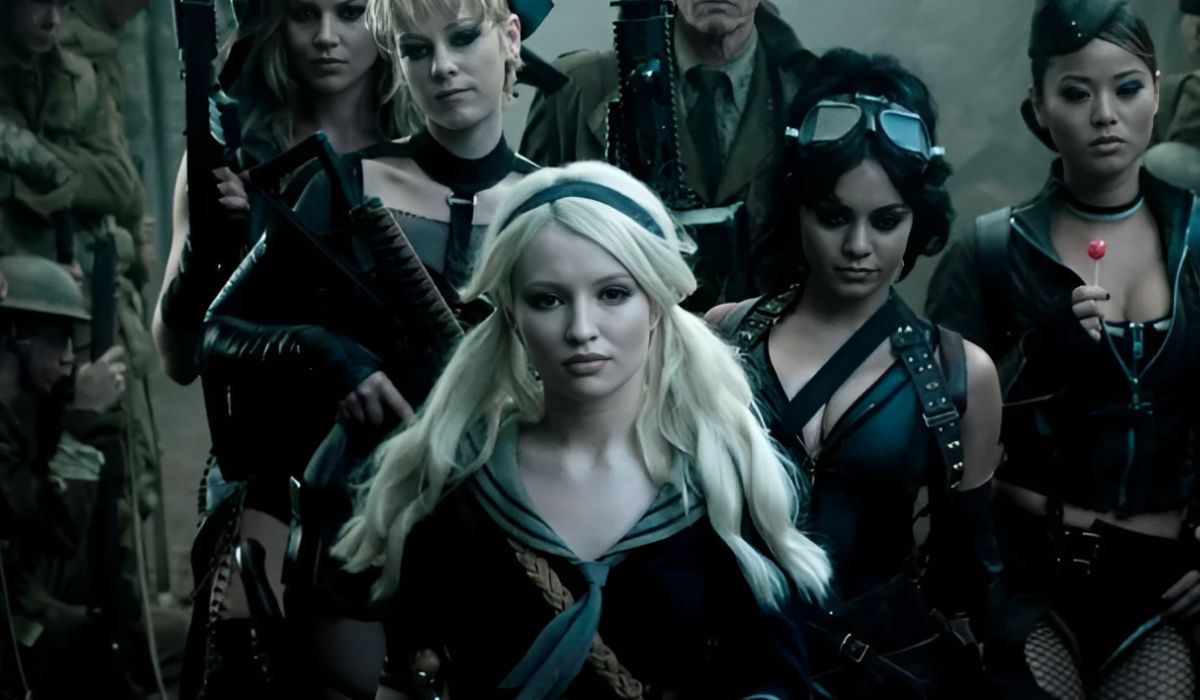When Suckernpunch (more widely known as Sucker Punch) premiered in 2011, audiences walked into theaters expecting a flashy action film with larger-than-life battles, stunning visual effects, and an all-female cast taking charge of the screen. What they encountered, however, was something far more layered and polarizing. Beneath the explosions, samurai duels, and dreamlike landscapes lies a movie that sparked endless debates about its plot, symbolism, and underlying message.
In this article, I’ll take you through the complete breakdown of the Suckernpunch movie, explaining its storyline, exploring its central themes, and uncovering the hidden meanings that often go unnoticed on a first viewing. As someone who has revisited the film multiple times and studied its cinematic techniques closely, I can confidently say that Suckernpunch isn’t just a movie—it’s an experience designed to challenge its audience on multiple levels.
Before diving deep into the analysis, let’s start with a quick snapshot of the key facts.
Quick Information Table
| Key Insight | Details |
|---|---|
| Release Year | 2011 |
| Director | Zack Snyder |
| Main Cast | Emily Browning, Abbie Cornish, Jena Malone, Vanessa Hudgens, Carla Gugino, Oscar Isaac |
| Genre | Action / Fantasy / Psychological Drama |
| Runtime | 110 minutes |
| Central Concept | Escapism through layered realities |
| Narrative Style | Symbolic, allegorical, and open to interpretation |
| Key Debate | Feminist empowerment vs. exploitation |
The Plot of Suckernpunch: A Layered Reality
At its core, Suckernpunch tells the story of a young woman named Babydoll (Emily Browning), who is institutionalized in a mental asylum by her abusive stepfather. From the very first moments, the film blurs the line between reality and fantasy. Babydoll’s real-world confinement is reimagined as a brothel-like environment, where she and other women are forced to perform for male clients. Within this setting, Babydoll retreats even further into a fantasy world of action-packed missions that symbolize her fight for survival.
The brilliance of this storytelling lies in its three-layered reality. First, we have the grim asylum. Second, Babydoll’s reimagining of that asylum as a theater of control. And third, the battle sequences, which play out as her subconscious way of processing trauma. These worlds bleed into one another, leaving viewers to question what is “real” and what exists only in Babydoll’s mind. The effect is deliberate—forcing us to confront the fragility of perception itself.
PEOPLE ALSO READ : How HydraHD Works: Detailed Overview & Expert Insights
Babydoll’s Journey: Heroism or Sacrifice?

One of the most striking elements of the film is Babydoll’s transformation. At first glance, she appears to be the protagonist destined to overcome her oppressors. Yet, as the movie unfolds, her journey becomes one of sacrifice rather than triumph. By the end, Babydoll realizes that her freedom may never come in the literal sense; instead, her strength lies in ensuring the survival of her friend, Sweet Pea.
This arc is significant for three reasons. First, it subverts traditional “hero’s journey” storytelling, where victory is measured by personal gain. Second, it emphasizes the theme of selflessness, with Babydoll choosing to give up her escape so another can succeed. Third, it reflects the broader theme of resilience in the face of oppression—an allegory for those who endure hardships not for themselves, but for the future of others.
The Supporting Characters: More Than Just Sidekicks
Each woman in Suckernpunch plays a symbolic role in Babydoll’s psychological landscape. Sweet Pea represents hope and leadership, Rocket embodies rebellion, Blondie stands for loyalty, and Amber symbolizes innocence. Together, they are fragments of Babydoll’s psyche—different parts of herself that wrestle with survival, fear, and desire.
From my perspective, their deaths are not simply narrative devices but psychological markers. Every loss Babydoll suffers signifies a part of herself being stripped away, leaving her with fewer resources to fight against her oppressors. By the time Sweet Pea is the only one left standing, the film has quietly revealed that this journey was always about her eventual survival.
Themes of Control and Power
The most pervasive theme in Suckernpunch is control—specifically, the control of women by oppressive systems. The asylum represents institutional control, while the brothel world amplifies that control into physical exploitation. The fantasy sequences, however, flip the narrative: in them, Babydoll and her allies are powerful warriors who fight back against monstrous foes.
What fascinates me here is the contrast between reality and fantasy. In one world, the women are powerless. In the other, they embody strength and agency. This duality forces us to confront how power is often a matter of perspective, and how imagination can serve as both a coping mechanism and a weapon of defiance.
Symbolism in the Fantasy Battles
The action sequences in Suckernpunch are more than just eye candy; they’re rich in symbolic meaning. The fight against giant samurai represents Babydoll’s struggle against overwhelming male authority. The dragon battle echoes themes of virginity, sexuality, and the fight to reclaim autonomy. The war-torn landscapes mirror the devastation of trauma.
When I first watched these scenes, I was caught up in their spectacle. But on later viewings, I realized each one carried metaphorical weight. Snyder crafted these battles not just to entertain, but to externalize Babydoll’s inner conflict—turning psychological struggles into visual warfare.
Feminism or Exploitation?
No discussion of Suckernpunch is complete without addressing the debate: is it a feminist film, or does it exploit its female characters? Critics have long argued both sides. Some see the movie as exploitative, pointing to the stylized costumes and objectification of women within the brothel setting. Others interpret it as a commentary on exploitation itself, with the fantasy battles representing the characters’ reclamation of agency.
From my analysis, the film deliberately straddles this line. By making viewers uncomfortable with its portrayal of control, Snyder compels us to question our own role as an audience. Are we simply consuming the spectacle, or are we reflecting on the deeper truths it exposes? That tension is precisely what gives Suckernpunch its lasting complexity.
The Role of Music in Suckernpunch
One of the most underrated aspects of the film is its soundtrack. Cover versions of iconic songs like “Sweet Dreams” and “White Rabbit” underscore the surreal tone, while each track aligns with the mood of its respective scene. Music in Suckernpunch isn’t background noise—it’s narrative fuel.
The soundtrack serves three purposes: it creates emotional resonance, bridges the transitions between layers of reality, and heightens the symbolic undertones of each sequence. Without this carefully curated soundscape, the movie’s dreamlike structure wouldn’t feel nearly as immersive.
Hidden Meanings and Allegories
For me, the most compelling aspect of Suckernpunch is its allegorical depth. The asylum represents society’s tendency to silence those who resist control. The brothel reflects the commodification of women. The fantasy battles symbolize the resilience of the human spirit in the face of trauma.
Even the ending carries multiple interpretations. Did Sweet Pea truly escape, or is her survival just another layer of Babydoll’s fantasy? The ambiguity forces viewers to wrestle with their own conclusions, a deliberate move that transforms the film into a conversation rather than a closed narrative.
PEOPLE ALSO READ : Who Is Deborah Bashir? Inside the Life of Martin Bashir’s Wife
The Legacy of Suckernpunch
Though it was not a commercial or critical success upon release, Suckernpunch has gained a cult following over the years. Fans continue to debate its meaning, share theories online, and defend it as one of Zack Snyder’s most misunderstood works. Its unique blend of fantasy and commentary ensures that it remains relevant in discussions about cinema’s ability to challenge norms and provoke thought.
Conclusion
-
Suckernpunch* is not a film that can be neatly categorized as either empowering or exploitative, as either simple action or complex allegory. It is all of those things at once—a layered exploration of trauma, sacrifice, and the blurred lines between reality and fantasy. By weaving symbolic battles into a story of survival, the film forces us to confront uncomfortable truths about control, agency, and the price of freedom.
After years of revisiting it, I believe its true power lies in its refusal to give easy answers. Suckernpunch challenges its audience to look beyond the surface and recognize that hidden meanings often lurk beneath spectacle. Whether you see it as a flawed masterpiece or a misunderstood experiment, one thing is certain: it’s a film that demands to be discussed.
Frequently Asked Questions (FAQs)
1. What is the main message of Suckernpunch?
The movie highlights themes of control, trauma, and empowerment, showing how imagination can serve as both a form of escapism and resistance against oppression.
2. Why does Babydoll sacrifice herself?
Babydoll realizes her survival is less important than ensuring Sweet Pea’s escape. Her sacrifice reflects themes of selflessness, resilience, and hope for the future.
3. Are the fantasy battles real in Suckernpunch?
The battles exist within Babydoll’s mind as symbolic representations of her struggles. They are not literal events, but metaphors for inner conflict.
4. Is Suckernpunch a feminist movie?
The film walks a fine line. Some view it as exploitative, while others see it as a commentary on exploitation itself. Its ambiguity is part of its lasting impact.
5. Why is Suckernpunch considered a cult classic now?
Though criticized on release, the film’s symbolic depth, bold visuals, and open-ended narrative have earned it a dedicated following that continues to debate its meaning.
FOR MORE : NEWS TAKER


